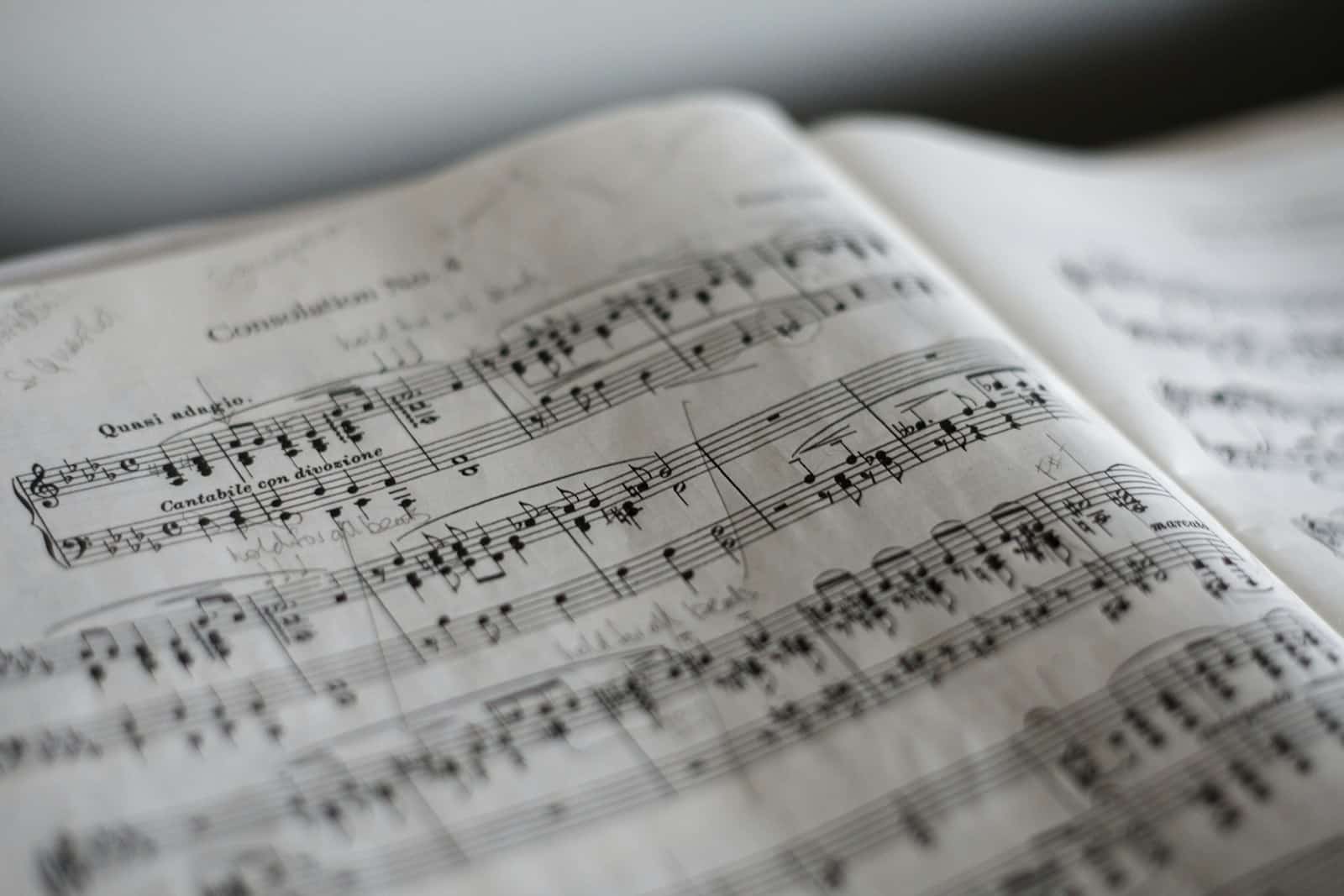Meaning in music is a tricky thing.
Most people think it’s tricky because music is so abstract and lacks specificity such that describing its meaning with words is nearly impossible. On the contrary, meaning in music is tricky for exactly the opposite reason.
As Felix Mendelssohn once noted, “What music expresses its not too indefinite to put into words; on the contrary, it is too definite.” In other words, we often have difficulty describing what music means with words because words lack the specificity that music has. Let me explain further.
Meaning in music is a tricky thing.
Most people acknowledge that music, at its most basic level, expresses emotional content. However, articulating what that emotional content is can often be a challenge. Yet as Mendelssohn correctly observed, this is due to the fact that words often lack the nuance to accurately identify a particular emotion.
We often use single words to describe very different kinds of emotions. Let’s use “joy” as an example. We use that one word to describe what a sports fan feels when his team wins the game, what a father experiences while playing with his children, and what a cancer patient feels when he learns that his cancer is gone. Yet these “feelings” are each quite different from each other internally, and they express themselves externally in often very different ways as well.
Music mimics what emotions feel like and how they express themselves, and in this way music is able to express what words alone cannot.
A sport’s fan’s “joy” usually expresses itself with exuberance, wild gestures, and yelling. A father’s “joy” is warm and peaceful. The cancer patient’s “joy” often results in tears. Each of these may rightly be called “joy,” but that word doesn’t quite capture the nuance of difference between them. Music doesn’t have that problem.
Unlike words, music is able to express nuanced emotional content. We think music is abstract because we can’t put it into words, but that’s not the fault of the music; it’s the words that are lacking. This is why music is often called the language of emotion. Music mimics what emotions feel like and how they express themselves, and in this way music is able to express what words alone cannot.
This is also why music is so powerful both as a tool for expressing what cannot be put into words and for teaching and shaping the heart. I can say “I have joy in God,” but unless I go on to more thoroughly elaborate what kind of joy I mean, the term alone is inadequate. Music allows me to specific what kind of joy I mean. Likewise, I can tell someone to “Rejoice in the Lord,” but using music allows me to further specify what that feels like and helps to shape the person’s heart toward an appropriate expression of joy.
Contrary to what many evangelicals believe today, we can determine what music means. We may find difficulty in putting that into words, but that doesn’t mean it is not possible.
There are two additional implications from this understanding: first, meaning in music is discernible. Contrary to what many evangelicals believe today, we can determine what music means. We may find difficulty in putting that into words, but that doesn’t mean it is not possible.
Discerning meaning in music is just as possible as discerning what another person is feeling by observing his behavior. We can tell when another person is sad or happy, elated or depressed, by watching their posture, facial expressions, and bearing or by listening to their tone of voice. We can also tell the difference between a sports fan kind of joy and a cancer patient kind of joy in the same way, though we might not be able to express it perfectly in words.
Christians must not fall into the trap of ignoring or even denying universal meaning in music because there are many different kinds of emotion, and not all of them are appropriate for expressing biblical truth or worshiping God.
Second, musical meaning on this level is universal. There are all kinds of other meanings in music that are not universal, limited to particular people, times, cultures, and experiences. But to acknowledge non-universal meaning on an association level does not deny universal meaning as well.
Meaning on the level I’ve been describing is universal because all people—regardless of gender, ethnicity, culture, or time—are part of the “culture of humanity.” We all share similar physiological, biological, and emotional characteristics such that when music expresses emotion on that level, its meaning is universal.
Christians must not fall into the trap of ignoring or even denying universal meaning in music because there are many different kinds of emotion, and not all of them are appropriate for expressing biblical truth or worshiping God. Some kinds of joy, love, grief, fear, and delight are fitting for God and his truth; others are not. Thus not every example of “happy” music is appropriate for expressing the words “Rejoice in the Lord,” nor is every kind of “love” music appropriate for expressing love to God.
Music, like any form of communication, carries meaning. Therefore, Christians must be discerning about what music they listen to for entertainment, and certainly what music we use in the worship of God.
Music, like any form of communication, carries meaning. Therefore, Christians must be discerning about what music they listen to for entertainment, and certainly what music we use in the worship of God.




